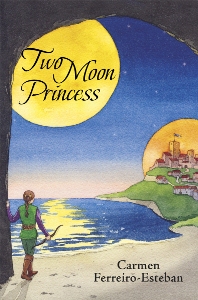This review contains affiliate links, which earn me a small commission when you click and purchase, at no extra cost to you. Thank you for supporting my small business and allowing me to continue providing you a reliable resource for clean book ratings.
You know the story: Persephone, the daughter of the goddess Demeter, is walking through the fields of her mother’s realm, when Hades, god of the Underworld, opens a chasm in the ground and snatches Persephone away. Demeter is so distraught that she ceases to help mortals until their suffering is so bad that Zeus interferes, demanding Persephone’s return. The problem: she’s eaten some pomegranate seeds, which binds her to the Underworld. The compromise is that she spends some time up on Earth with her mother, and the rest in the Underworld with Hades.
As Whitman’s imagined it in Radiant Darkness, however, that isn’t the story at all — or, more specifically, not all of it. Whitman takes the basic myth and expands it, changing the motivations. Persephone — thank heavens — is no longer a passive character, totally at the whims of more powerful gods, but an acting, thinking, feeling person. She dislikes her mother, from whom she can’t seem to get much approval and who doesn’t accept that Persephone is growing up. She falls in love with Hades; though they sneak around behind Demeter’s back, he doesn’t kidnap her. Most of all, this Persephone makes choices.
Unfortunately, many of those choices are based on faulty information: both Hades and Demeter choose to refrain from telling Persephone information that would help her make better choices, or help her be more at ease with the choices she does make. This part of the story grates; since Hades and Demeter fill parental roles, they know better than Persephone, and they still limit her. Hades especially grates: he is trying to fill both the role of lover and parent, which kind of makes him seem a bit creepy (as can Edward, the overly protective Twilight love interest). Most of the time, I want to smack him. And while we’re told that Demeter’s actions are motivated by love, we never really see it. (Either that, or it’s some funny kind of love. …)
All of that adds up to making the book kind of … flat. I really wanted to like the book. I did like Persephone, as a character. And Whitman’s vision of the Underworld is interesting; it becomes not just a place for the shades to reside, but an actual kingdom, something that Persephone could work with and improve. But the gods-being-gods aspect of it kept me, at least, from really enjoying the story.
Rated: None
Click here to purchase your copy of Radiant Darkness on Amazon.




